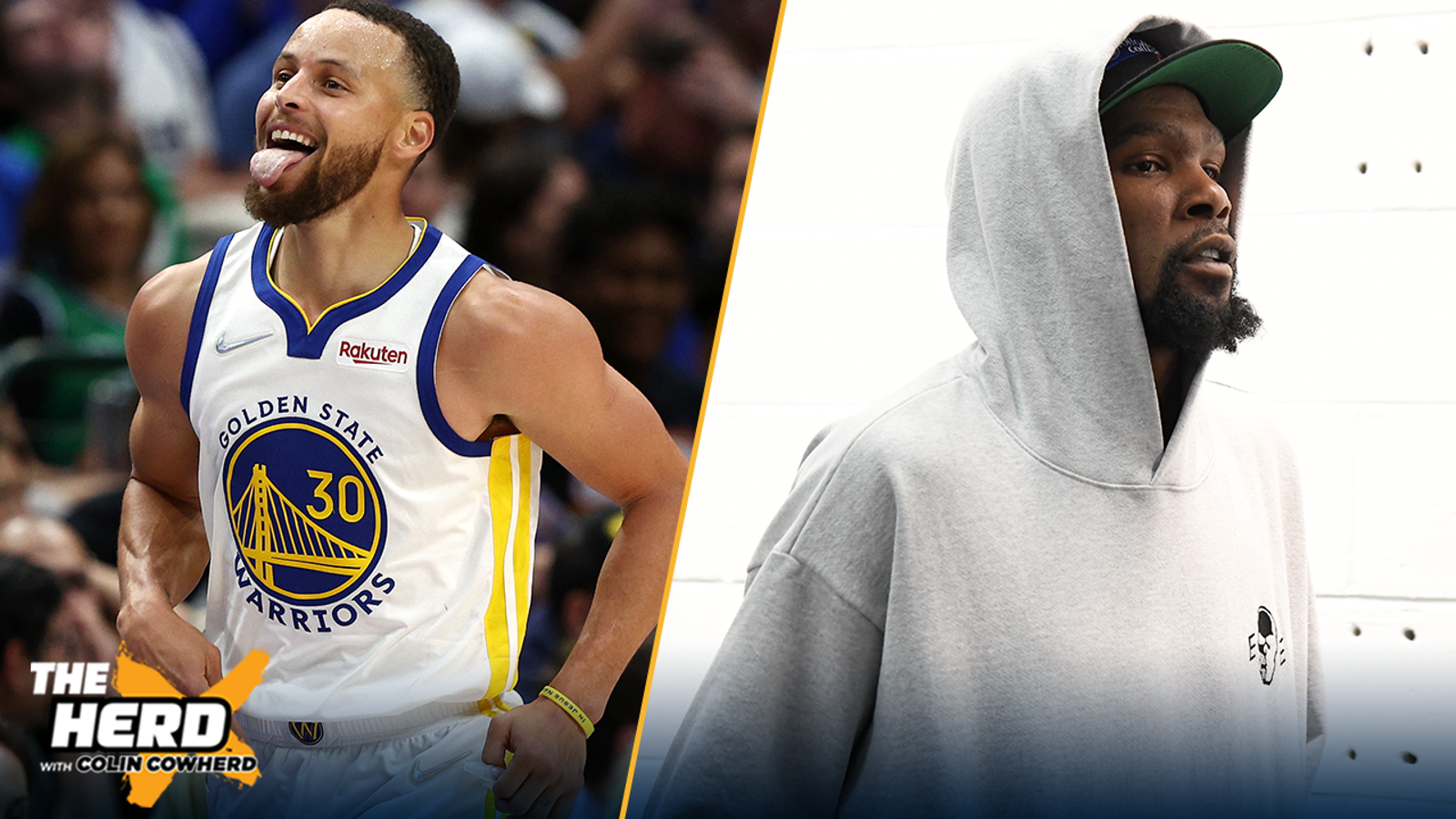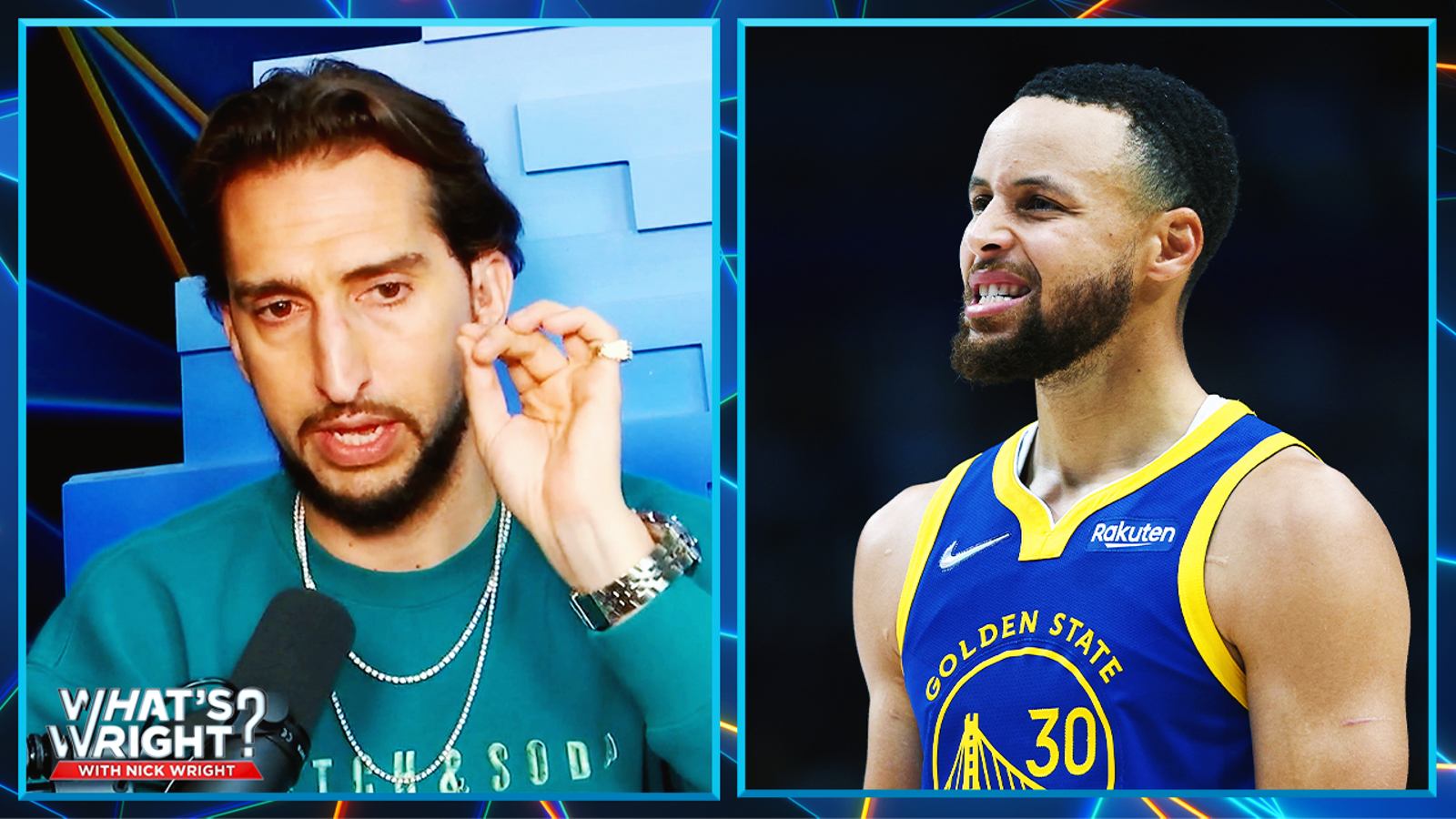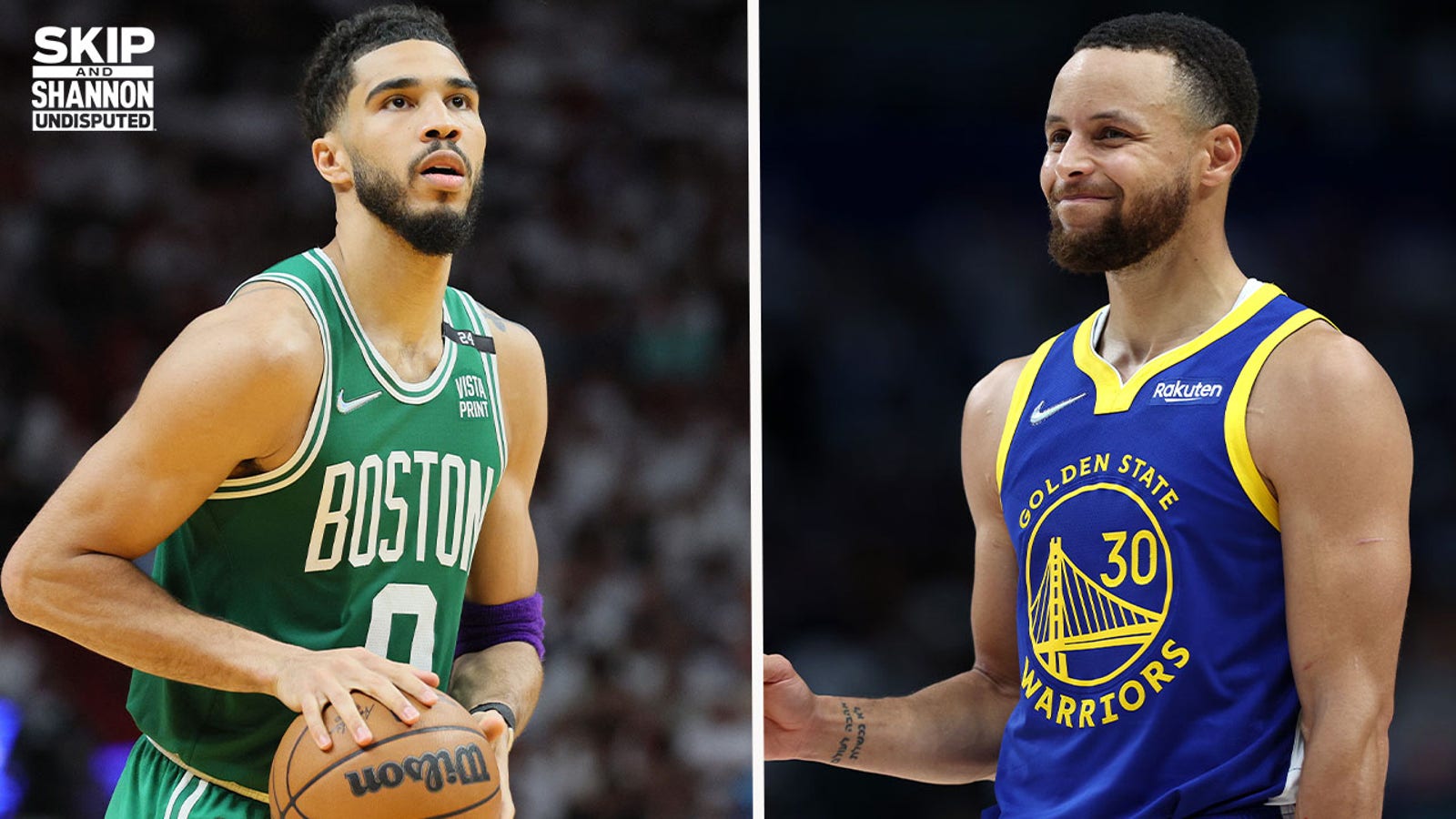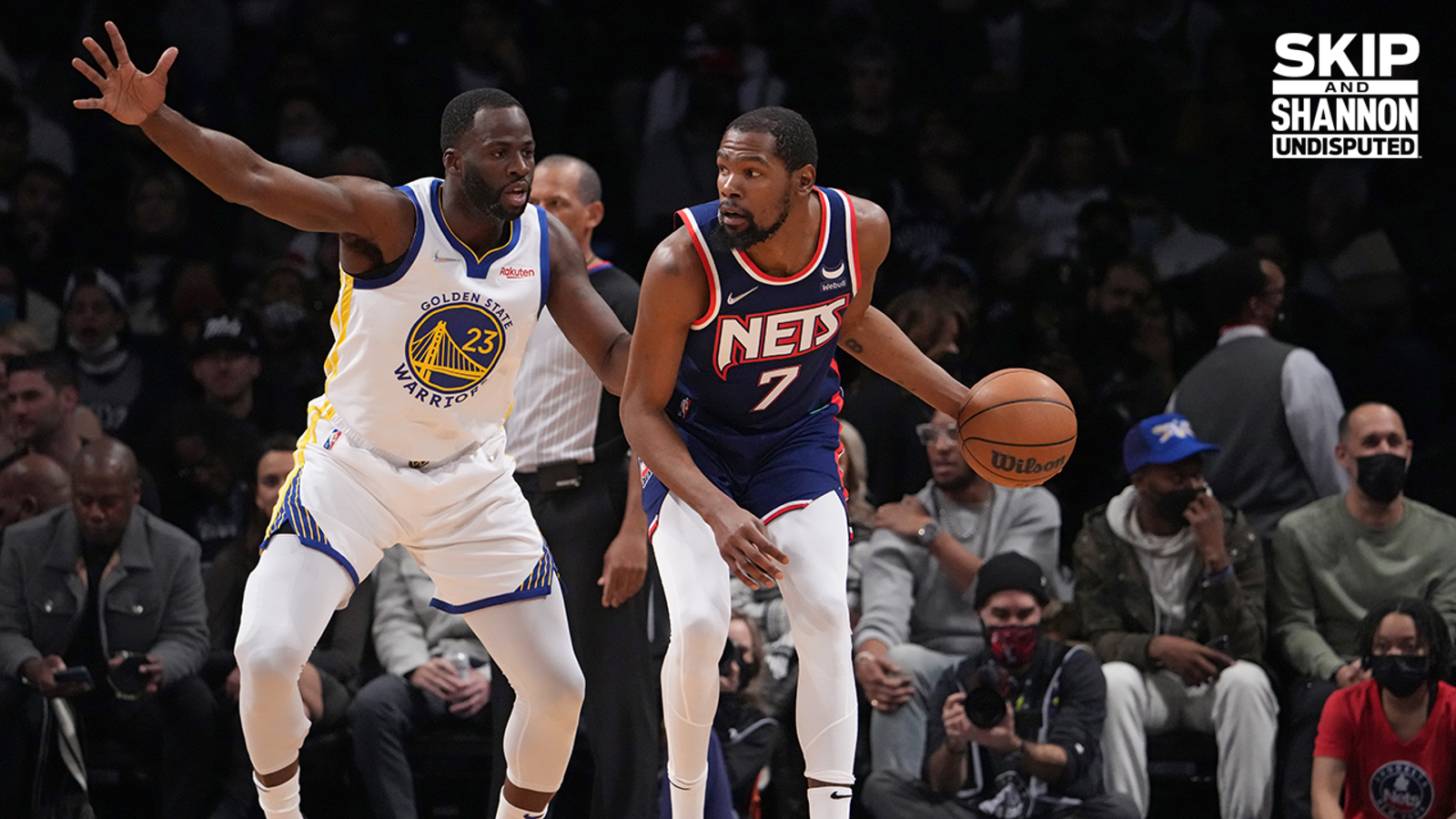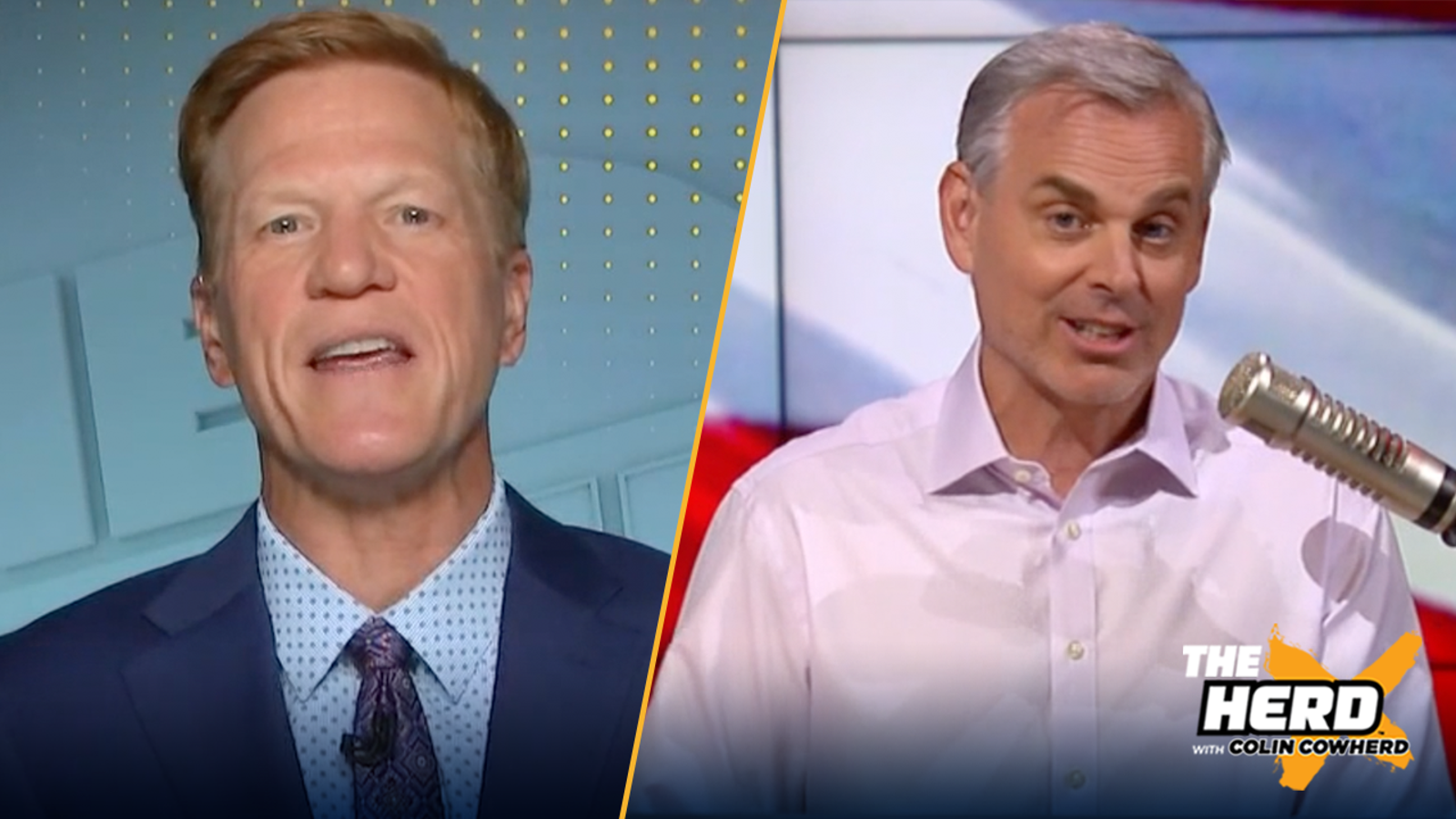
How superstar Stephen Curry inspired Warriors to 'chase greatness'
By Ric Bucher
FOX Sports NBA Writer
It was last summer, while driving home from an early-morning workout session with Steph Curry, when assistant coach Bruce Fraser first believed the Warriors were on their way to where they are today, back in the NBA Finals with a chance to add another jewel to their crown as the league's most successful franchise of the past decade.
Curry made him believe.
"I was coming from a workout with him at a high school gym near his house," Fraser told FOX Sports. "That’s when it hit me: ‘He’s chasing greatness. He knows he has another shot at this.’ He was going so hard I thought he was going overboard, but I didn’t say anything. It inspired me, made me think about what more I could be doing.
"And you could feel it day one when he showed up at training camp. Our entire team could feel it."
Why Steph Curry is the "most influential player ever"
This isn’t how life in the NBA normally works. Teams have their dynastic runs, as the Warriors certainly did, going to five consecutive Finals and walking away with three titles. But there’s a toll. The pressure and expectations eventually splinter both relationships and bodies. The grind of playing longer and harder than anyone else inevitably results in injuries, as the Warriors certainly found out.
Klay Thompson, Curry’s sharp-shooting Splash Brother, tore his ACL in the sixth and final game of the 2019 Finals. Kevin Durant had blown out his Achilles tendon a game earlier. Draymond Green, the setup man for Steph and Klay and the backbone of their defense, tore a finger ligament early the following season and dealt with an array of ankle, knee and hip issues throughout the year. Curry broke his hand and sustained nerve damage that put him on the shelf for all except five games.
The emotional strain and logistics of financially keeping a winning roster intact came to bear as well. Durant, still unfulfilled by two titles and two Finals MVP awards, left via free agency for Brooklyn. Andre Iguodala was traded to the Memphis Grizzlies to create financial room to acquire younger, fresher legs in the form of Andrew Wiggins.
The Warriors’ championship-seeking days, by all indications, were over. A member of the organization said as much to FOX Sports when it became clear that Durant planned to leave.
What does Warriors' success say about Kevin Durant?
If that thought ever crept into Curry’s psyche, though, it was dismissed by last summer. Thompson’s tireless work to return from not just the ACL tear but also an Achilles tendon torn as he prepared for the 2020-21 season provided both hope and motivation. As did the return of Iguodala after one-and-a-half seasons with the Miami Heat. As did the growth of Wiggins and the emergence of the team’s 2019 first-round pick, Jordan Poole.
Curry knew the years had exacted a price on him as well and that, with his 34th birthday on its way, he would have to refine his approach.
"It’s that old line about how do you work smarter, not harder," Curry said amid the Warriors’ first-round playoff series against the Grizzlies. "How you deal with the emotions of a long, 82-game season, each individual series and the mental and physical toll it takes on you. How you spend your off days in between, practice sessions — all those things you get more refined in terms of mastering the ebbs and flows of this time of year."
The road this season hasn’t been without its obstacles, even though Curry’s vision was realized by a 41-13 start. For him, there was a chance to become the league’s all-time leading 3-point shooter, which he did in mid-December. That, too, came with a cost. The media attention, accompanying pressure and concerted effort by opponents not to have him set the record on their watch wore him out, both physically and mentally. He subsequently went into one of the worst shooting slumps of his career, and the Warriors faltered with him, losing 16 of their last 28 games.
"That was weird for him because he’s such a team guy," Fraser said. "That quest was personal, and he’s never been a personal quest guy. It was too self-serving, and he just wanted to get it done. It affected the mental side of him more than anything. He got away from who he is."
Curry would surpass KD, Giannis with another title
The chase — and the collateral damage — served as much of a lesson as the array of defenses designed to slow him down. He had learned a similar lesson the previous season, when he single-handedly tried to drag the Warriors — without Thompson or a healthy Green — to the playoffs, leading a torrid 15-7 finish to climb from 10th to eighth in the Western Conference standings, only to lose consecutive games in the play-in tournament to the Lakers and Grizzlies.
The takeaway: Curry needed to take a more cerebral approach rather than trying to overwhelm teams with his dizzying, stop-and-start moves and 30-foot bombs.
"He sees things now," Fraser said. "He was a young gunslinger who didn’t see anything. It was part of his brilliance. He’s far more calculating now."
That goes for his off-the-court commitments as well. The first flush of stardom, after a four-year start to his career beset by ankle issues and no All-Star appearances, combined with his inherent graciousness, left Curry struggling to say no to anyone asking for his attention.
There is no one who spends more time on a daily basis with Curry than Fraser, and he watched the deluge of requests and Curry’s attempt to satisfy them all, saying nothing. Fraser’s nickname is Q — short for Question Man — given to him by coach Steve Kerr when they were teammates at the University of Arizona because of his penchant for asking questions.
One day he finally asked Curry, "All these people asking for things from you, how many of those ‘yeses’ are ‘maybes’?"
"What are you getting at?" Curry asked.
"The ‘maybes’ should be ‘nos,’" Fraser said.
Who will win the 2022 NBA Finals?
The attention from opposing defenses to take away the most lethal part of his game, shots from anywhere and everywhere beyond the 3-point arc, served as another valuable lesson. Curry realized his midrange game had fallen off the past few years. Sensing the presence of Poole and the return of Thompson would create space for him to find avenues inside the arc again, Curry went to work with Fraser — tightening his handle, expanding his catalog of shots and recapturing his touch.
The two have worked together so long and intensely — eight seasons now — they refer to their array of drills and practice plans as the Cheesecake Factory. "Because it’s a big menu," Fraser said. "Steph loves routine, but he doesn’t like to be monotonous."
And because Curry has a passion for playing golf as much as he does basketball, Fraser used a golf analogy for the part of the menu on which they spent the most time last summer.
"More short stuff, chipping and putting," Fraser said. "We got back to some of the old pages, and we added more actual game situations. It was more volume shooting from various spots in the past. We’d create a scenario, like getting a shot off a split cut, and he’d take that one shot, and then we’d move on to the next scenario."
Draymond Green, Kevin Durant exchange jabs on social media
Curry has a more balanced approach off the court since his last trip to the Finals as well. He and his wife, Ayesha, have three kids under the age of 10 — daughters Riley and Ryan and the newest addition, 3-year-old son Canon. The summer workouts were conducted in two- to three-week sessions, followed by several weeks when Curry's family and business interests took priority.
"There’s a balance of staying so locked in mentally on every detail of the game plan, every detail of your own performance, watching the rest of the series going on around the league but also getting away from it and keeping life as normal as possible," Curry said. "Because it is so high intensity, a high-stress environment, and you want it so bad sometimes there’s a tendency to go too hard.
"It’s just kind of hashing out what that means for you. For every player it’s different. For every team it’s different. But there’s a comfortability in having gone through these reps at this stage. It’s all about how can you be as fresh as possible mentally and physically for every single game and control what you can control from that standpoint."
For all the maturity and balance and life lessons, Curry still has a wild side to him, at least when it comes to taking shots, whether from the Chase Center court logo or an impossible angle around the rim to elude a thicket of defenders.
"He’s maintained his mustang spirit," Fraser said. "He’s not afraid to take shots that would be bad for almost anybody else. He [craves] that adrenaline at times. He needs those fixes every now and then. But he’s also figured out how to make defenses pay in other ways. He’s wiser to the world and to the game. That’s where he is right now in every sector. He’s in that perfect window."
What Finals MVP award would mean for Curry's legacy
Could all that synchronicity result in Curry securing the one accolade missing from his trophy case, the one accomplishment that could cement his place among the greatest to ever play — the Finals’ Most Valuable Player?
There is no doubt Curry’s candidacy will garner as much attention as his pursuit of the all-time 3-point record. But while everyone else might be obsessed with the topic, Curry won't be.
"I think that’s where he’s changed," Fraser said. "Would he like to get it? I’m sure he would. But he’s not going to chase it. He has a different perspective. He’s grown."
Steph Curry is older and wiser. And, against all odds, quite possibly better.
Ric Bucher is an NBA writer for FOX Sports. He previously wrote for Bleacher Report, ESPN The Magazine and The Washington Post and has written two books, "Rebound," the story of NBA forward Brian Grant’s battle with young onset Parkinson’s, and "Yao: A Life In Two Worlds," the story of NBA center Yao Ming. He also has a daily podcast, "On The Ball with Ric Bucher." Follow him on Twitter @RicBucher.


